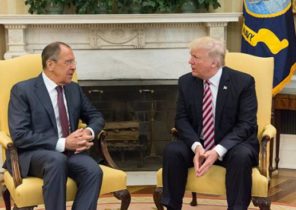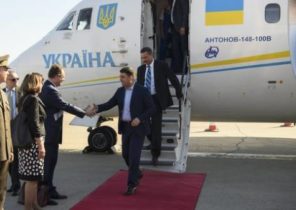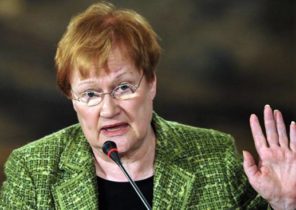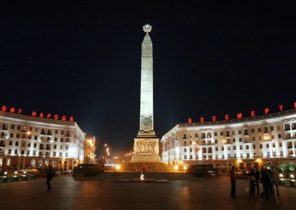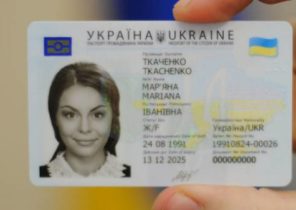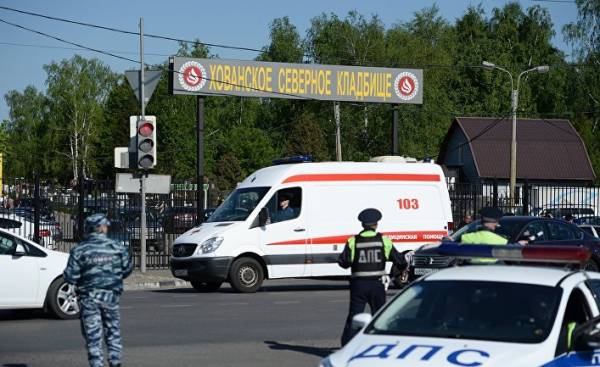
Need the blackest of humor and a fertile imagination to think of the horrors that actually occur at burials in Russia. In January, Chelyabinsk in the Urals, the attendant presented to the bereaved family of someone else’s grandmother in a coffin. When relatives complained, the undertaker claimed that everything is in order. Real grandmother, meanwhile, had already been buried by another family. They did not notice the confusion, although it is customary in Russia to say goodbye to the deceased near the open coffin.
The granddaughter of the first family was recently invited on television to participate in the program, which was entirely devoted to a chaotic funeral business. Presenters and guests wondered how it was possible that Russian citizens are often in a state of profound grief become victims of crooks and charlatans. No industry is so sorely neglected and corrupt, as the funeral business. But change is coming.
The fight at the cemetery
The first sign was a fight on khovanskoye cemetery, the largest cemetery in Moscow, and perhaps in all of Europe that stretches nearly two square kilometers on the outskirts of the South-West of Moscow between the landfill and construction markets. For 45 years it hosts the burial of Muscovites. Their faces printed on ceramic medallions or engraved on the smooth stone of the gravestones, telling the story of the capital of the multinational Empire: Slavic cheekbones, Asian eyes, some of the tombstones is decorated with the Crescent.
In may 2016 here a fight took place. Armed men suddenly appeared between the graves and attacked the Tajiks that spring is here illegal he worked as a gravedigger. Tajiks fought back with shovels and stones. According to some reports the fight involved more than 200 people. In the end, three men were killed and nearly 30 were wounded. First, the fight was perceived as an ethnic conflict, a fight between workers. But then it turned out that among those arrested were the nationalists, who on the instructions of the Director of the cemetery extorted from Tajiks money for “roof”, otherwise, once they chased. About the “war” in the cemetery of the Newspapers. 50 workers were deported, the Director was arrested.
The struggle for the redistribution
The Moscow sociologist Sergei Mokhov said the Khovanskii incident indicator of change, but rather the struggle for the redistribution of influence on the lucrative funeral market. Shortly before the fight, the Ministry of construction has proposed the government to consider the bill relating to matters of burial. Stakeholder groups would the scandal influence on the text of the law, said Mokhov, who in the framework of her thesis explores the culture of mourning in the Soviet and post-Soviet Russia. Meanwhile, the law was again revised and, apparently, soon to be adopted. About it, according to Mokhov, the recent frequent media reports about the problems and cases of fraud between the morgue and the cemetery that are promoted by interest groups.
Mokhov can clearly explain how the funeral business has evolved into what is now. Before the revolution of 1917 in tsarist Empire cemeteries ruled the Church, she received a fee from the relatives of the deceased and buried him in accordance with his rank. In large cities, the citizens adhered to the European mourning rituals and created similar parks cemetery in the style of Père Lachaise. The Bolsheviks abolished both traditions promoted a crematorium, only care about the graves of heroes. Although the funeral was officially a matter of state, in fact in the cemeteries was anarchy. Soviet citizens often dug the graves of their relatives themselves and were making gravestones of metal, wood and clay.
Under President Boris Yeltsin, anarchy continued. Signed in 1996, the law on the burial of almost nothing to adjust. Only one thing: the cemeteries and crematorium will remain in the hands of the state and every citizen is supposed to free a place for burial. The details were left to the discretion of local administrations. But local authorities didn’t want to invest money and take responsibility. Therefore, about 90% of the cemeteries in Russia did not even have the cadastral number, said Mokhov. Legally they did not exist, and no one could check out where the buried millions of Russian citizens.
Since, on the other hand, the government has not established a legal framework for private funeral business, savvy small business owners have a business to manage access to often quite devastated public infrastructure. Some opened a small Bureau, some sat right in the lobby of government crematoria and collect charges for services, which by law should be free: the results of the body from the morgue, cremation, grave digging, transportation of the coffin.
Moscow as a special case
In a sense, Moscow is an exception. 136 cemeteries of the capital are officially registered and managed by the state service “Ritual”, which itself organizes and burial. According to the Director of “Ritual” Artem Ekimov, each year held in Moscow about 100 thousand of the funeral, which on average, in terms of rubles, cost of 870 francs. The turnover of the funeral business in the capital is a total of 87 million francs, a quarter of the total Russian trade turnover. According to Ekimov, about 15% of this huge amount for his Department. The next 15% earn about 20 legally existing funeral homes, and the remainder seeps into the wildly overgrown black market, according to some estimates, 2 the thousands of illegal agents.
These “black agents” to learn of the death of the Muscovite, even before his friends. Police officers, doctors and employees of morgues increase his modest salary by selling funeral agents data about the name and address of the recently deceased person for an amount equivalent to about 400 francs. They call relatives on the phone or in the door to offer them their services for the purchase of burial and funeral expenses. Almost always they are asking much too high a fee for services is often modest. Paid for receiving ‘ the bribe indirectly paid by the client.
A new bill in the latest published edition is already five times larger in volume than the old law of the 90-ies. It regulates the position and condition of the cemeteries, state care about dead people with no relatives, and many other questions are much more detailed than the current law. The project involves a private crematorium and businesses in the arrangement of the graves, which are lacking in Russia. Private cemeteries, however, should not be. It is not clear how the details should look the licensing of funeral Directors. The bill deals with the penalties for violating the rules, but the rules have yet to be developed. At the moment, not even spelled out the dimensions of the coffin and the grave. But no matter how carefully the text of the law will regulate standards that all will remain as before, if the supervision will again be entirely entrusted to the local authorities, according to industry insiders.
The state monopoly
Ilya Talkers, a young entrepreneur in the funeral industry of Kaluga which is located 200 kilometers southwest of Moscow, is friends with a scientist Moss. Together, they attend conferences in Western Europe to obtain information on how it regulates burial. Best for Boltunova would happen if it industry can fully develop freely and self-regulation, as in America. Then the competition would regulate the quality. In the construction sector in Russia is to some extent working. But this is not the merit of the legislators, said the businessman.
Moscow office of “Ritual”, which surprisingly came out unscathed from the scandal with their Director Khovansky of a cemetery, has announced that it plans to occupy 50% of the Moscow market over the next few years. To do this, it just builds in the center of this “multifunctional funeral-ceremonial center” is 3 thousand square meters. As an example, the Director of “Ritual” results in China, which has similar companies. Entrepreneur Talkers calls the project “Soviet delusions of grandeur”, which has nothing to do with the needs of the people. But the laws are always written in Moscow and for Moscow, he says. The rest of the country’ll be okay.
Russia remains a corrupt
Everyday corruption in the form of small bribes for services remains everywhere in Russia. For state employees with low salaries this represents an additional source of income. This may be one reason why the Russian leadership, unlike the Chinese government, still had not shown a genuine interest to fight corruption. In terms of organization, Transparency International Russia occupies 131 place out of 176 countries. Compared to last year Russian corruption remains at a consistently high level. Although in 2016, Russia took 119 place, but the list of countries had been somewhat shorter. Non-governmental organization is trying to reflect in its index the scale of corruption and corrupt cliques and relied on expert evaluations and public opinion polls. Worse than Russia, in the new list showed the result, primarily, of the country, which are currently ongoing armed conflicts.
Stricter laws against corruption that were adopted in previous years, proved to be ineffective Fig leaf. Critical to the government fights corruption, for example, the oppositionist Alexei Navalny, impose heavy charges against the state leadership in recent times against Prime Minister Dmitry Medvedev, who, they say, with the help of surrogates has created a multibillion-dollar real estate Empire. Previous investigation of the Bulk revealed corruption in the midst of the Russian Prosecutor General Yuri Chaika.

